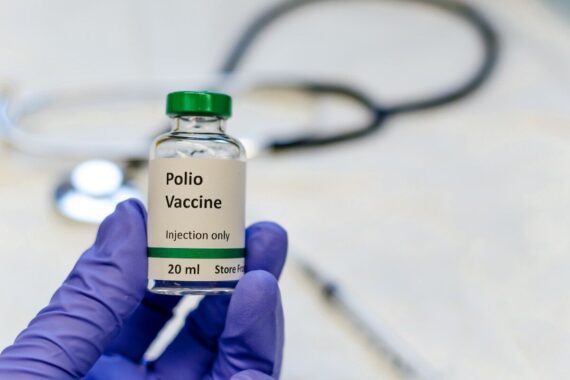London GP leaders have expressed ‘substantial concern’ over the ‘scale and timing’ of the urgent polio booster plan, and the effect on practice workload.
UKHSA and NHS England yesterday tasked Greater London GP practices with identifying, contacting and delivering a polio booster jab to all children aged 1-9, and those who have not had a primary course.
This should begin immediately, with GPs asked to prioritise the 160,000 children in North and East London, followed by offering appointments to all 905,000 eligible children in London by 26 September at the latest.
But Londonwide LMCs highlighted that this comes as London’s GPs are already providing record numbers of routine appointments, with the Covid and flu vaccination season also ‘getting into full swing’.
The organisation said ‘any redirection of the workforce away from routine care’ would affect work being done to reduce the backlog and ‘alleviate public concerns about GP access’.
The LMCs also complained there was ‘no central resourcing available at practice level beyond the standard £10.06 IoS fee’, even though ‘significant additional time’ will be required to identify and potentially contact patients, and extra clinical staff and premises capacity will be needed to give the jabs.
Even if there was additional workforce funding’, the LMCs said there is ‘insufficient qualified workforce’ to administer the vaccinations in the time frame, with ‘only 1,262 WTE practice nurses in London, including advanced nurse practitioners’, it said in a bulletin.
‘Providing the initial 160,000 children with a 15 minute appointment would require 40,000 hours or 180 nurses working 37.5 hours solidly over a six-week period.’
‘The total of 905,000 appointments would take 226,250 hours, so even if extended beyond the envisioned time frame to allow 10 weeks, it would still take 600 nurses working solely on the campaign to provide the necessary appointments,’ the LMCs added.
It has been suggested that GP federations could aid delivery. However, ‘they would still be trying to staff the campaign from the same limited workforce pool as practices’ and ‘only practices can order stock and the regulations around transferring it to a federation are complex’, according to the LMCs.
Further, Londonwide LMCs has ‘not seen the information that will be given to parents explaining the rationale for giving children a stand-alone polio vaccine’.
The organisation said: ‘We are concerned this may affect the informed consent process meaning appointments take longer, it could also increase health anxieties meaning more general practice and NHS capacity being taken up with counselling, consenting and reassuring patients.’
Londonwide LMCs CEO Dr Michelle Drage said: ‘All GPs recognise the importance of vaccination and do not want to see a return of polio, but we have substantial concerns over the scale and timing of this plan.
‘Currently London general practice is providing record numbers of appointments as teams who are already under extreme strain continue to try to offer safe access for patients and handle the impact of the backlog of care, while in the midst of a workforce crisis.
‘More than a decade of under-resourcing needs to be addressed if there is to be capacity for general practice to take on such additional large scale campaigns, against such tight deadlines, without having an impact on the delivery of the Government’s stated main priorities.’
Londonwide LMCs added that they have escalated concerns to BMA England’s GP Committee.









No win here. Do it with downgrade on other services and see what happens when you make a few grand from it. Don’t do it and be pilloried for not helping. Looking at the stress involved and all the consenting I suspect it is not worth a tenner each. Business wise profitable activity more important than turnover. Better idle than busy making a loss.
Also, a technical point which no-one has mentioned: IPV is not effective at stopping transmission of Polio; it’s only effective at preventing paralysis in infected individuals. There were reports of a novel OPV in development. Trivalent OPV was stopped six years ago and bivalent OPV doesn’t include Type 2.
Current outbreak is VDPV2, presumed from ongoing use of trivalent OPV elsewhere. Trouble is, we currently don’t have anything to stop transmission of VDPV2 from circulating in the community.
UK General Practice is breaking, a slow motion car crash. Adding this particular burden will accelerate the process. How about some “Blue sky thinking” to quote an oft used management phrase and a guaranteed Bullshit Bingo winner.
Back in t’day when I were a young lad (late 1950s Aldershot) I recall one day that put a smile on my face. We were all given sugar cubes to eat whilst sat in class! Hey, unexpected but welcome and dentists take the hindmost.
Not quite so straighforward now with the IPV but noting Nick Mann’s comments maybe reversion to an OPV and sugar cubes might be the future. 😉